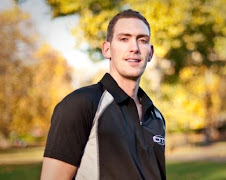Keeping fit isn’t something that people would necessarily choose to do. After all, if we refer back to the olden days - I'm talking cave men times, exercise was a necessity. It was part of our daily routine in order to survive. We would walk, run and lift on a daily basis in order to stay fed, keep warm, and avoid becoming the hunted. Food wasn’t on tap like it is today. In order to eat we had to perform physical activity. These days we don’t even need to walk to the shops. It is for that reason that we have to find a way to incorporate this non compulsory exercise into our lives, because essentially, our bodies were designed to exercise. Without exercise we don’t function properly.
Let’s look at sport as an example of exercise, because, like survival, there are goals to sport. Both short term and long term. Football teams want to score a goal. They want to score enough goals to win the match. They want to win enough matches to win the league and so on. Most of us will succumb to a challenge, whether it is finishing The Times crossword or winning a game of tennis. There is a purpose, a goal, a reason to partake in the activity.
In order to make exercise more interesting and effective we need goals. A visit to the gym without a goal could be considered a pointless activity. Now, we could argue that the goal is to get fit, however this is a long term goal with no specific benchmarks. To really have a goal is to have a number of goals, short and long term. If you lift weights, you should be looking to step up to the next weight. If you run, you should be looking to knock seconds off of your personal best. Not only does this give you something to aim for and think about during each individual session, but it gives the session a measurable purpose. It also means you can actively achieve a goal which is far more satisfying then the feeling you get from simply ‘doing some exercise’. That particular achievement is usually only satisfying on your first visit to the gym.
Above all, goals must be realistic, because if we start an exercise regime with unrealistic goals we will soon become disappointed and give up hope. A popular system of remembering how to set effective goals is called the “SMART GOALS” approach. It states that goals must be:
•Specific
•Measurable
•Agreed Upon
•Realistic
•Timelined
For a more detailed breakdown of how to set SMART goals email mailto:dom@dt-training.co.uk?subject=SMART%20Goals
Thursday, 17 December 2009
Subscribe to:
Comments (Atom)


